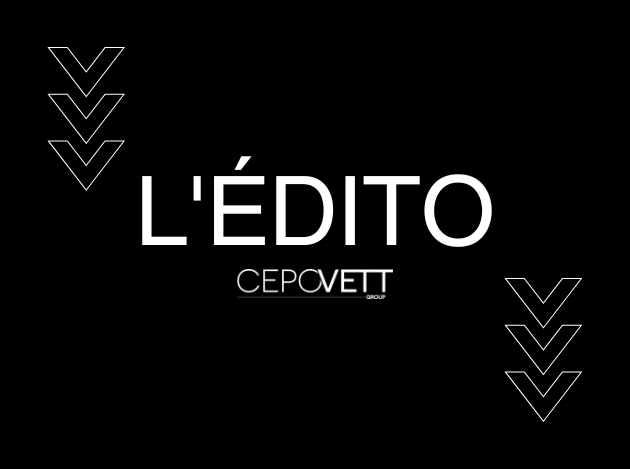The protective clothing more and more glamorous
24 May 2023The Covid-19 transforms our relationships with others
24 May 2023Covid-19 will kill more SMEs than men
As the Covid-19 pandemic continues to spread around the world, European industries are beginning to suffer from the Chinese slowdown. In France, the number of SMEs and VSEs hit by the crisis is already higher than the number of people affected. After the health crisis, an economic crisis is looming, revealing the limits of a production model too dependent on China.
Double punishment. In addition to the health crisis of Covid-19, there is an economic crisis whose first effects are being felt. While the number of contaminated people has almost reached 2000, several thousands of small and medium-sized businesses have already filed for short-time work due to operating losses, despite the support measures already put in place by the government. The panic of the world's stock markets bears witness to this: viruses, just like financial crashes, have no borders and we can already predict a European, if not global, recession. As quarantines and precautionary rules increase, consumption slows or even decreases. Shopkeepers and restaurant owners, in particular, are appealing to the public authorities while hospitals are dreading the influx of patients: it is our entire social, economic and political universe that is being shaken. Consumers, encouraged by the media, have entered an anxious and even irrational phase.
"This global crisis is anchored in a viral emotion that is accentuated and amplified by social networks.
An economic crisis is looming
The world's factory is paralyzed
The drop in production in China is one of the first tangible signs of this decline. Les images satellite météo témoignent d’une disSatellite weather images show a disappearance of chronic pollution.parition de la pollution chronique. Factories are reopening slowly and have not returned to full capacity due to a lack of personnel, transportation and accessibility to major cities while the country has instituted containment measures. All it takes is one grain of sand in the Chinese machinery for the world to go off the rails. As the main supplier of finished products and spare parts for a majority of companies, this slowdown in production is crippling French industry at all levels and causing total disorganization of the supply chain. It reveals the limits of an all-Chinese model designed to optimize costs. The beginnings of shortages of sensitive products such as certain chemicals, medicines or dyes call into question our dependence on China, a world factory for decades.
Service companies under pressure
Thus, the event, tourism and luxury industries are under pressure. The ban on gatherings of more than 1,000 people has resulted in a cascade of cancellations of all trade shows, concerts and performances scheduled for February, March and April. In this sector, the entire value chain is collapsing, from the hostesses to the organizers, including the technical teams, the catering and the caterers who run these events. School trips and other outings have also been frozen, hurting the transportation industry, and tourist travel has been reduced to a trickle. Finally, the luxury goods market, for which the Asian markets are the main consumers, has seen its sales collapse since January. The Chinese stores are deserted, the employees confined, just like the department stores in Paris. In this predicted slump, however, large companies will always have the resources to get by - in China as in Galeries Lafayette, luxury goods will always find takers - while SMEs and VSEs, which are more fragile, will be heavily affected.
An opportunity to change the model
Produce and consume differently
There will certainly be some breakage. There are already some. But behind the crisis, we can seize an opportunity and a light: that of change. This pandemic is, in fact, an opportunity to produce and consume differently. Forced degrowth, accentuated by collective fear, leads us to reflect in depth on our consumption patterns. Without China, we will probably have to resolve to buy less but better and more expensive, giving priority to European sourcing, and not only French. It is then that the notion of "fair price" will make sense. Because it rhymes with confidence, traceability, security, solidarity and control of the production chain.
"Far-away sourcing had the primary virtue of driving prices down; economic relocalization will have the virtue of leading us to arbitrate on our essential needs."
Towards a reindustrialization of the territories
Covid-19 also reminds us of the need for massive financial investment in life sciences and new technologies to face these new challenges. This is an opportunity to seize for the French industrial fabric, which the state must imperatively support, to allow French companies to have efficient and modern production tools to reindustrialize the territories. Our SME industry must organize itself into clusters, become strong and attractive to young people and avoid its dependence on distant foreign markets. Finally, in the face of the economy, nature seems to recall its rights. The biodiversity that we have been working to destroy for decades. It calls us to order by pointing out our weaknesses and the fragility of the human being in a chain of life where the best rubs shoulders with the worst. This virus, undoubtedly carried by a vulgar Pangolin that had nothing to do with the human food chain, appears as the "black swan" from which we should learn the lesson: it is perhaps the first signal of an economic and viral war between the Middle Kingdom and the rest of the world.




